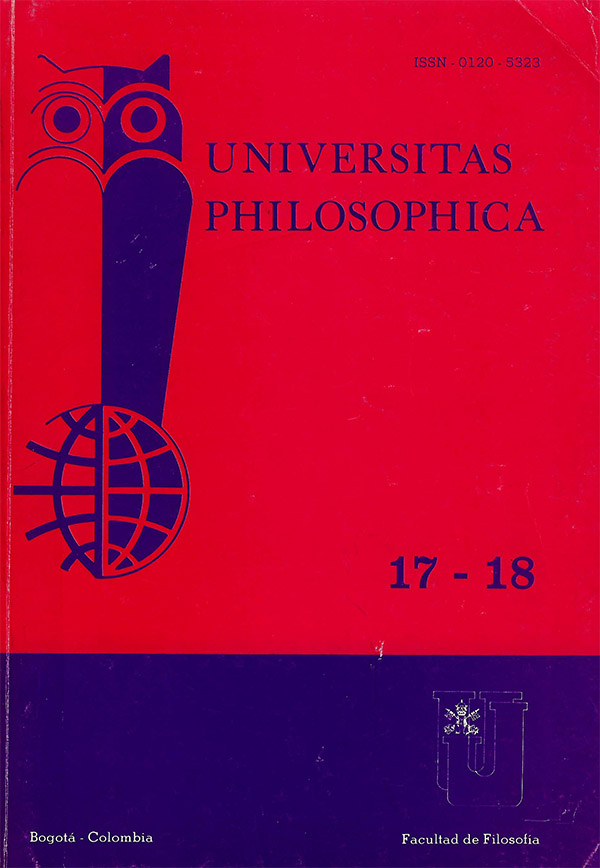Abstract
En este artículo se presenta y se discute la tesis de Peter Geach acerca de las corrupciones de la lógica. Según este autor, el paraíso lógico lo representa la teoría de la proposición como una relación sujeto-predicado, donde la función semántica nominativa del sujeto es esencialmente diferente de la función semántica atributiva del predicado; el abandono de esta teoría es la pérdida del estado de gracia lógico original. La posición de Geach se debate en el sentido de que nunca hubo tal paraíso lógico, y que la teoría de los dos términos -que considera al sujeto y al predicado como términos unidos por una cópula- es un estadio necesario en el desarrollo de la lógica que no conlleva las funestas consecuencias. aducidas por Geach. Este problema se estudia en el Sofista de Platón, en el De interpretatione y en los Analíticos primeros de Aristóteles, y en la Summa logicae de Ockham, con algunas alusiones a la lógica contemporánea.This journal is registered under a Creative Commons Attribution 4.0 International Public License. Thus, this work may be reproduced, distributed, and publicly shared in digital format, as long as the names of the authors and Pontificia Universidad Javeriana are acknowledged. Others are allowed to quote, adapt, transform, auto-archive, republish, and create based on this material, for any purpose (even commercial ones), provided the authorship is duly acknowledged, a link to the original work is provided, and it is specified if changes have been made. Pontificia Universidad Javeriana does not hold the rights of published works and the authors are solely responsible for the contents of their works; they keep the moral, intellectual, privacy, and publicity rights.
Approving the intervention of the work (review, copy-editing, translation, layout) and the following outreach, are granted through an use license and not through an assignment of rights. This means the journal and Pontificia Universidad Javeriana cannot be held responsible for any ethical malpractice by the authors. As a consequence of the protection granted by the use license, the journal is not required to publish recantations or modify information already published, unless the errata stems from the editorial management process. Publishing contents in this journal does not generate royalties for contributors.


